Whether we realize it or not, food is a big part of romantic relationships. First dates often involve carefully planned dinners, lovers bond over their favorite cuisines, and many couples gather around a table to talk about their day.
So it’s understandable that redditor Potential-Trash-7890’s first date stormed out of a restaurant when she realized he ate without her. Completely baffled about what he did wrong, he turned to the “AITAH” subreddit, asking for its members’ unbiased opinions.
Scroll further to find the full story and a brief chat with dating coach Hayley Quinn, who kindly agreed to tell us more about such dinner date behavior.
Not all first dates go as planned

Image credits: Brooke Cagle (not the actual photo)
This guy was left by his date because he had already eaten without her
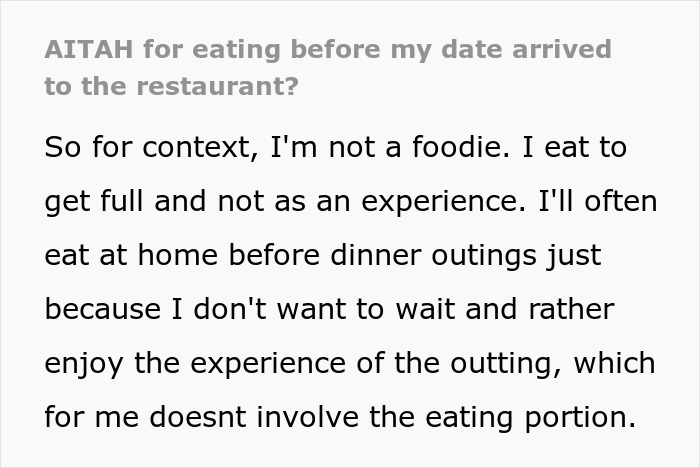
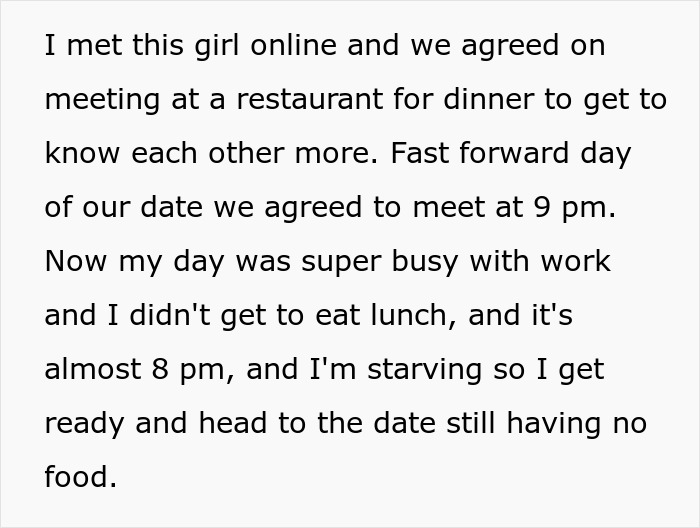
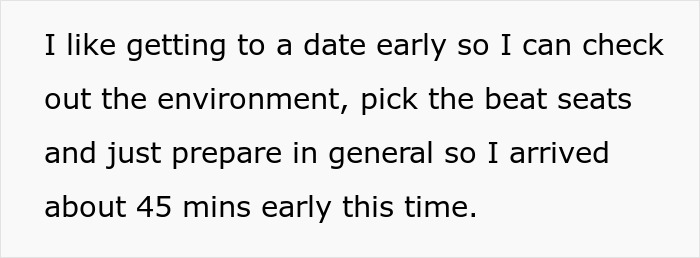
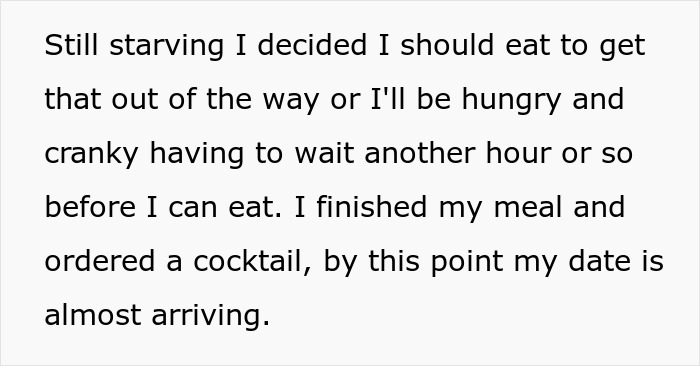

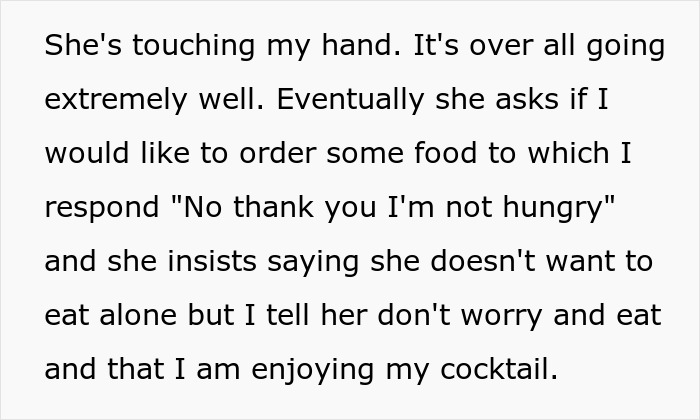

Image credits: Mikhail Nilov (not the actual photo)
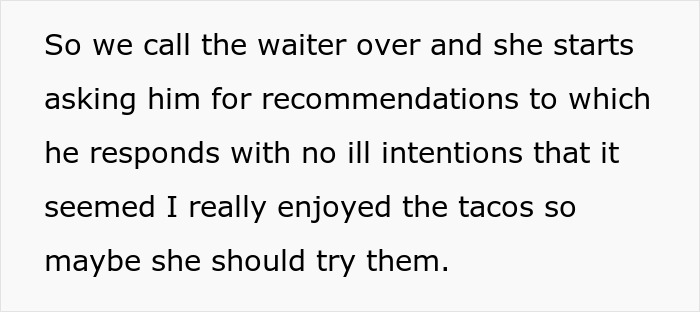
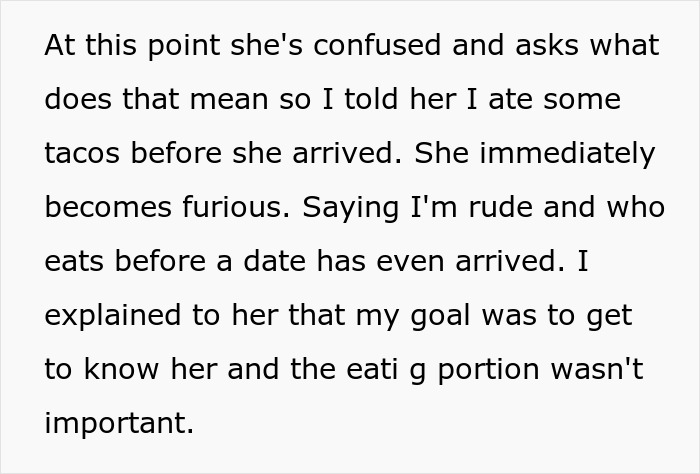
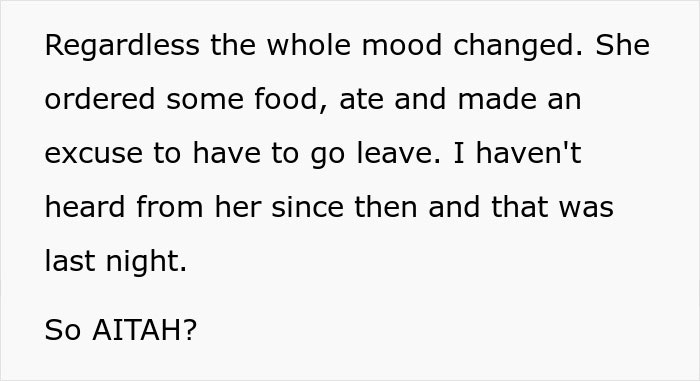
Image source: Potential-Trash-7890
The author joined the comments to provide more details on the situation
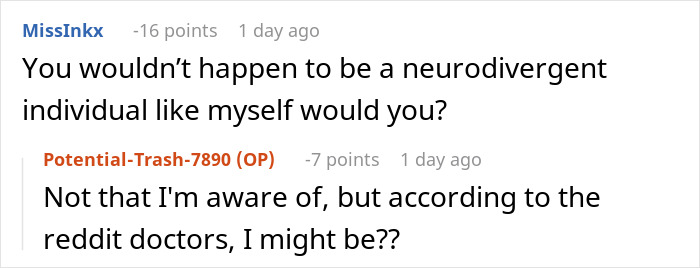
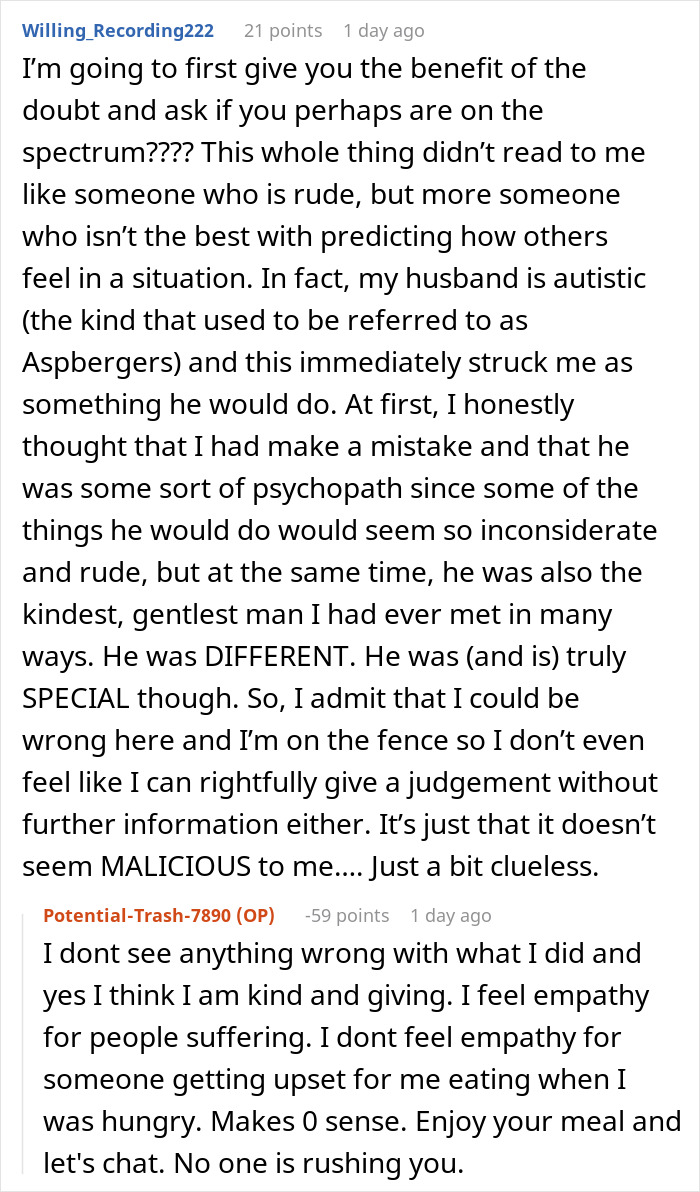
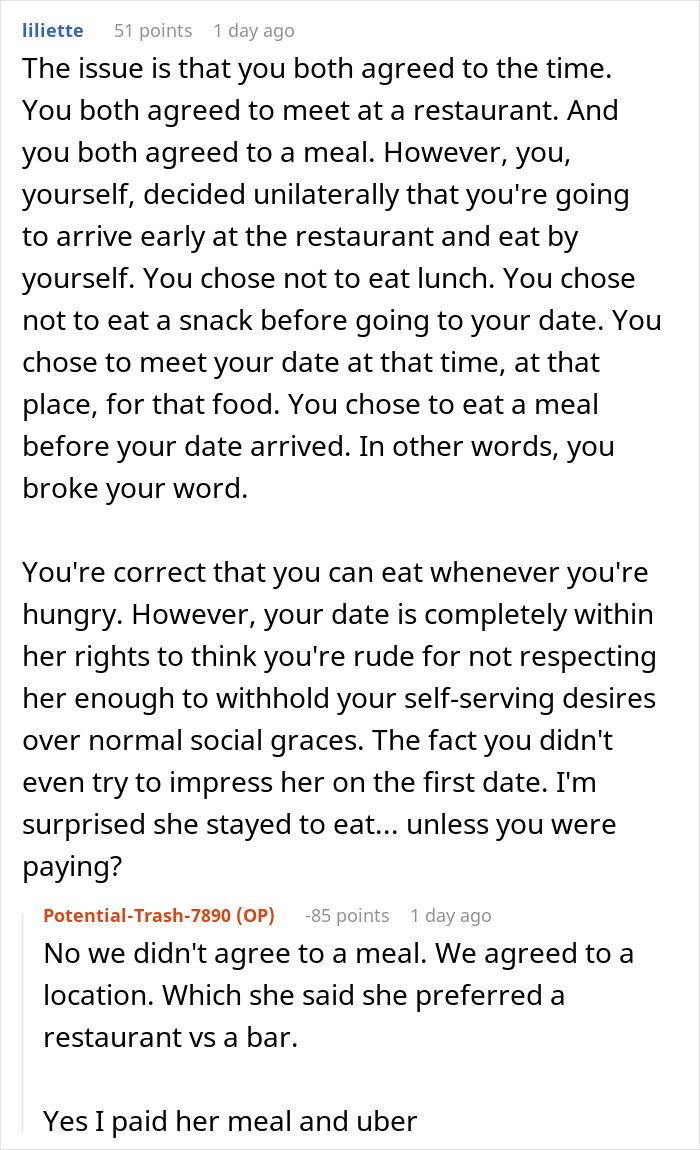
A dating coach on dinner behaviors
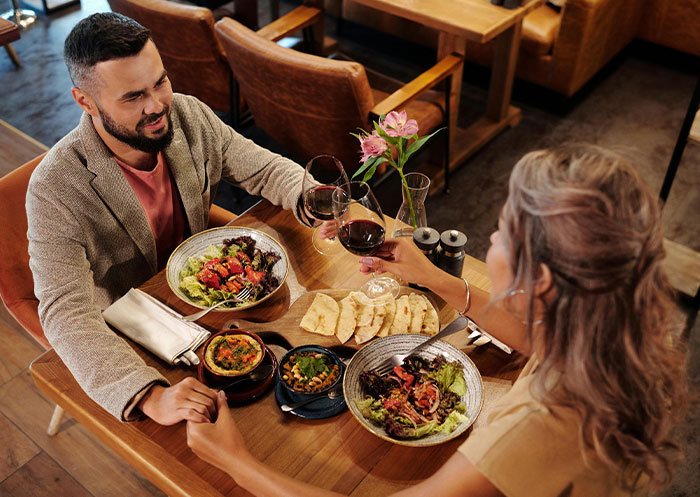
Image credits: Jep Gambardella (not the actual photo)
According to data, 49% of Americans still prefer the old-fashioned dinner for a first date over meeting for coffee or drinks. But as evidenced by the story, there are a lot of secrets that make an outing for a meal successful.
Bored Panda reached out to dating coach Hayley Quinn, who kindly agreed to tell us more about dinner date behavior that would guarantee a second date next time around.
We were curious to know if the guy was acting rude on his date’s part. Quin told us, “Eating dinner before your date arrives will make you come across as self-centered and inconsiderate, which are exactly the opposite qualities you want to demonstrate to a potential partner. Eating together and sharing food is a way that we build social bonds, and waiting for your date to arrive will show consideration and respect for them.”
Indeed, sharing food is a very big part of dating. Psychologists at Leeds University have found that couples who tasted each other’s meals wanted to go on a second date, compared to 43% of those who didn’t share. Having dinner together also creates an intimate atmosphere and gives the pair more time to get to know each other better.
But there is more to having an impressive meal than giving up your last bite of cheesecake. Love coach Persia Lawson warns against any sort of stringy or challenging food after she almost choked on a piece of ham. Others tell cautionary tales against fish, whose little bones tend to get stuck down people’s throats or in their teeth. Of course, the most obvious is the problematic spaghetti, which is quite difficult to eat in front of your date.
Giving up the idea of dinner dates
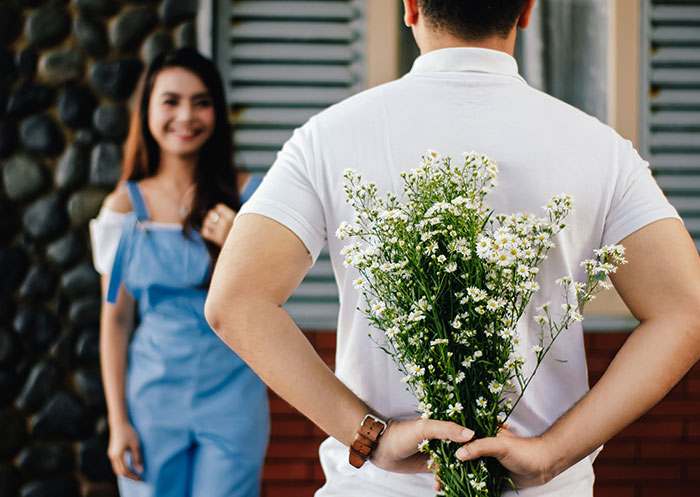
Image credits: Vija Rindo Pratama (not the actual photo)
If a person already had their dinner before the outing, Quinn advises trying to understand why their date is not happy about it. “If someone’s upset by you eating first, don’t try to rationalize your decision to them. Saying, “Well, I was really hungry,” isn’t going to make them feel better.”
“That’s because it’s not the act of eating itself that will feel problematic to your date, but it will be the implication that you don’t value quality time with them or that you’re unconcerned [of] their needs. Instead, try expressing, ’I can understand why that upset you. For me, it was as simple as feeling hungry and acting on that impulse, but I can see how that left you feeling like I wasn’t thinking about you. I do really value our time together.’”
It’s possible that a person not eating on such an outing should give up the idea of dinner dates altogether. Quin advises, “If you prefer not to eat during a date, then first of all (if possible) communicate your preference beforehand and don’t choose dinner dates. Instead, say, ‘Thursday is great, but can we do something active instead?’ Choosing to go on non-dinner dates will enable you to build your bond and avoid any awkward conversations.”
She added, “If you do wind up on a dinner date, be careful to express your preference for not eating as a personal decision and not a reflection of them, ’It’s for personal reasons, but I’m not eating out at the moment – however, please eat! I’m happy to be here, spending time with you.’”
“Keep your explanation short and positive: Often, if it’s not a big deal to you, it also won’t be a big deal to them!”
Most commenters were shaming OP’s actions
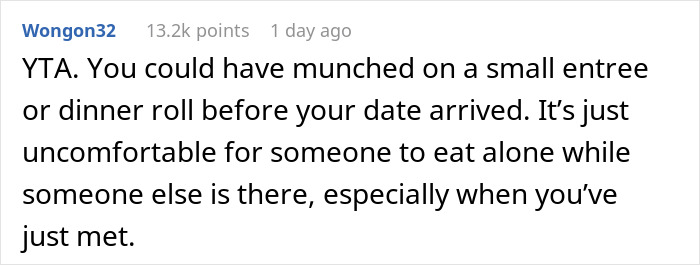
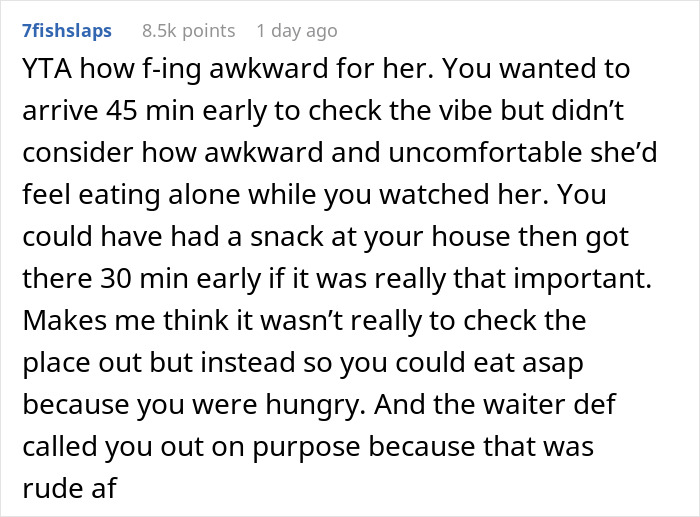

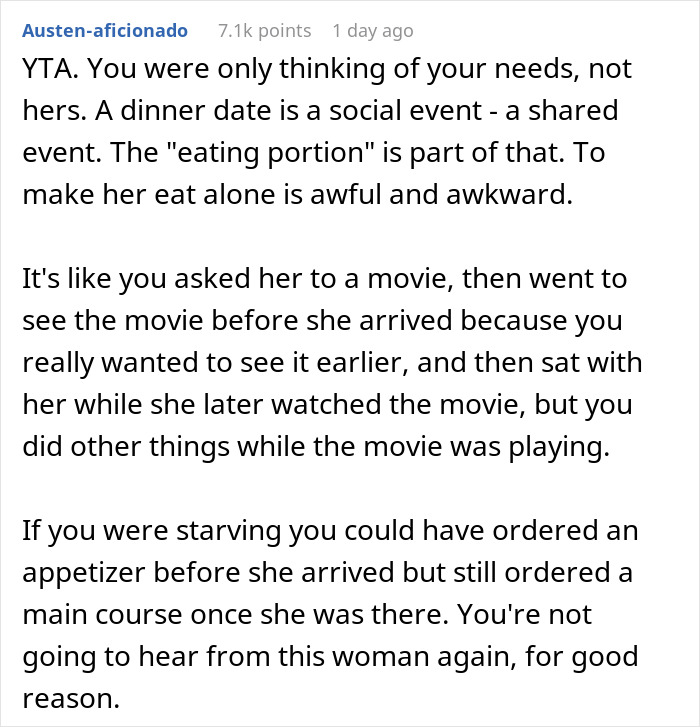
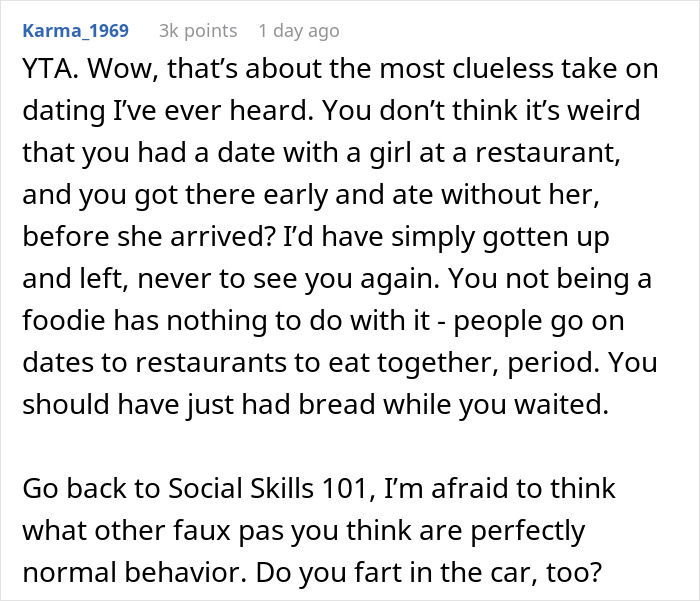
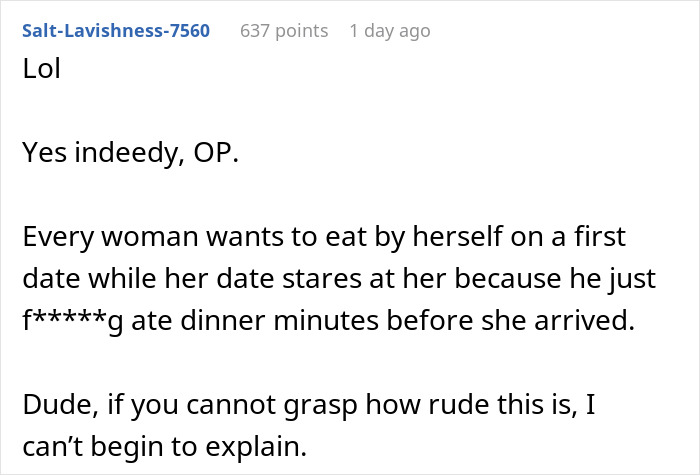
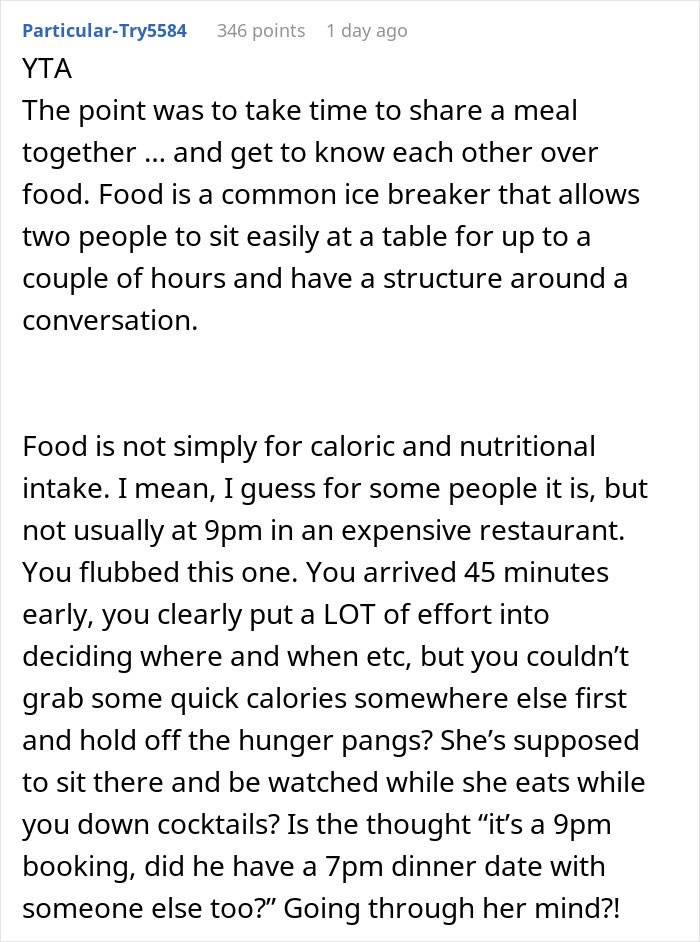
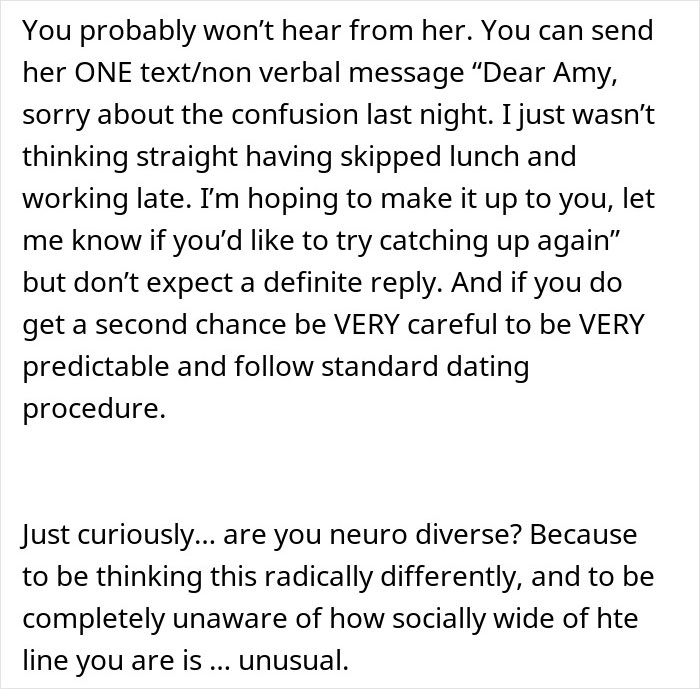
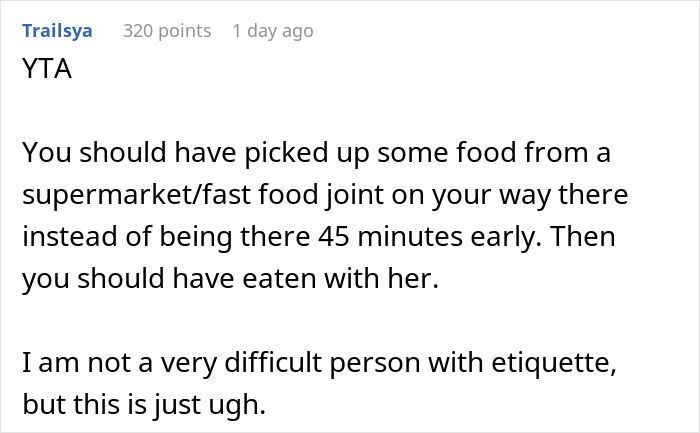
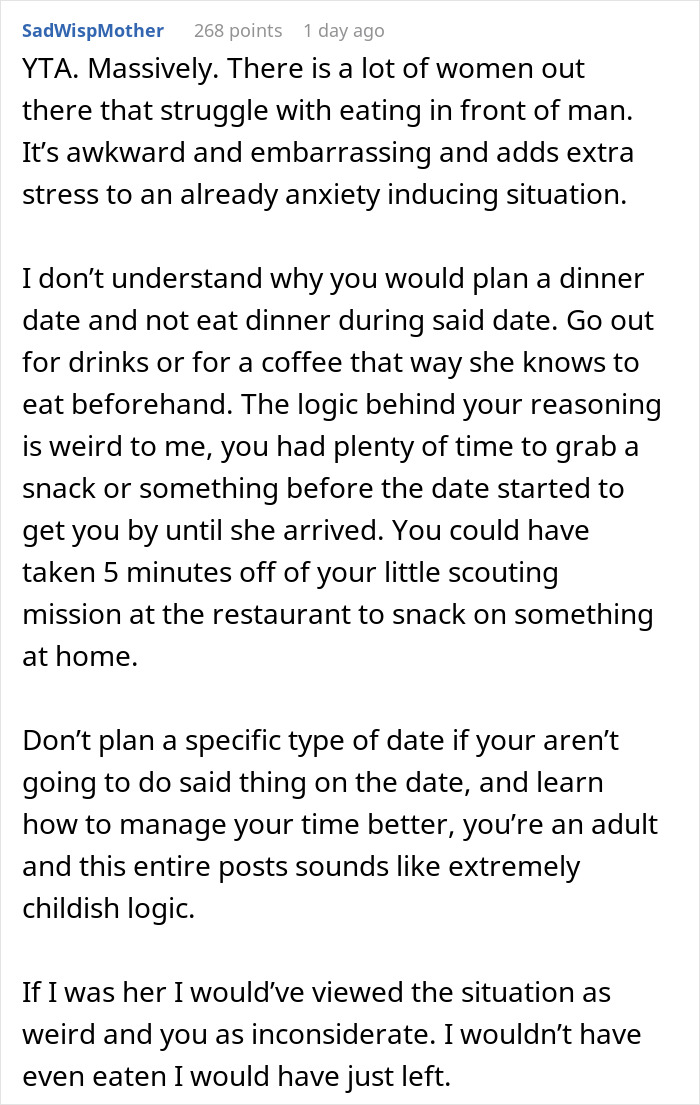
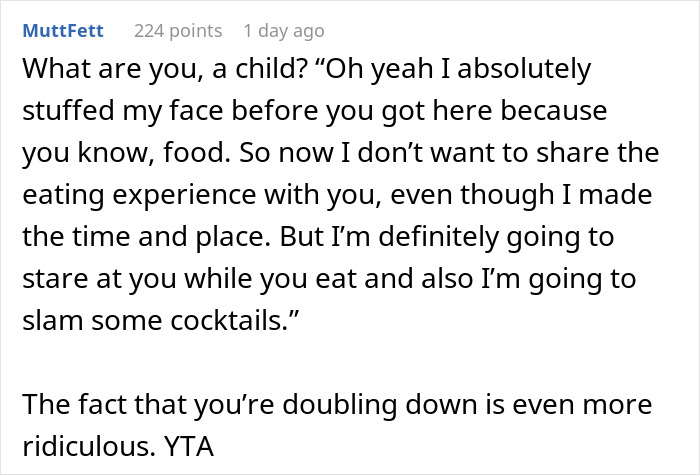
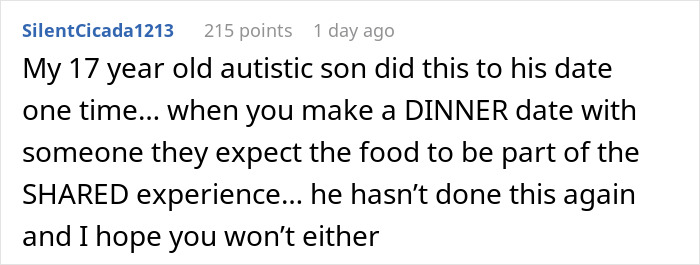
Some were on his side, suggesting that a restaurant wasn’t the best place for a first date


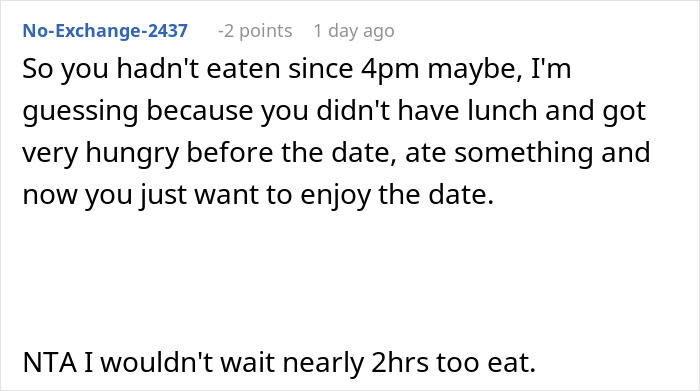
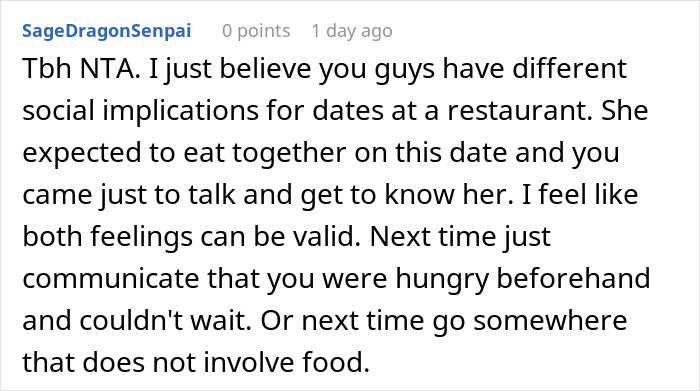












 English (US) ·
English (US) ·